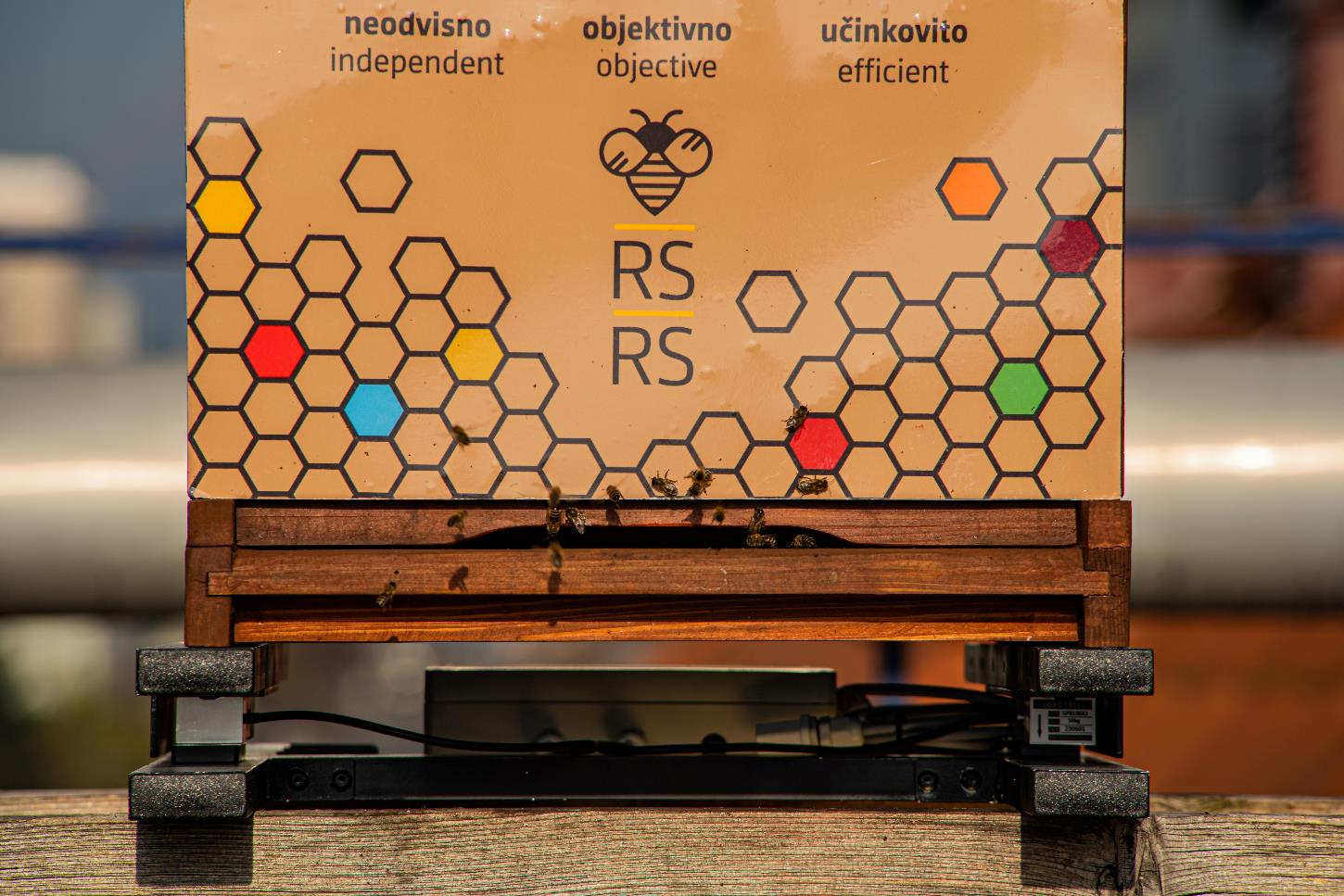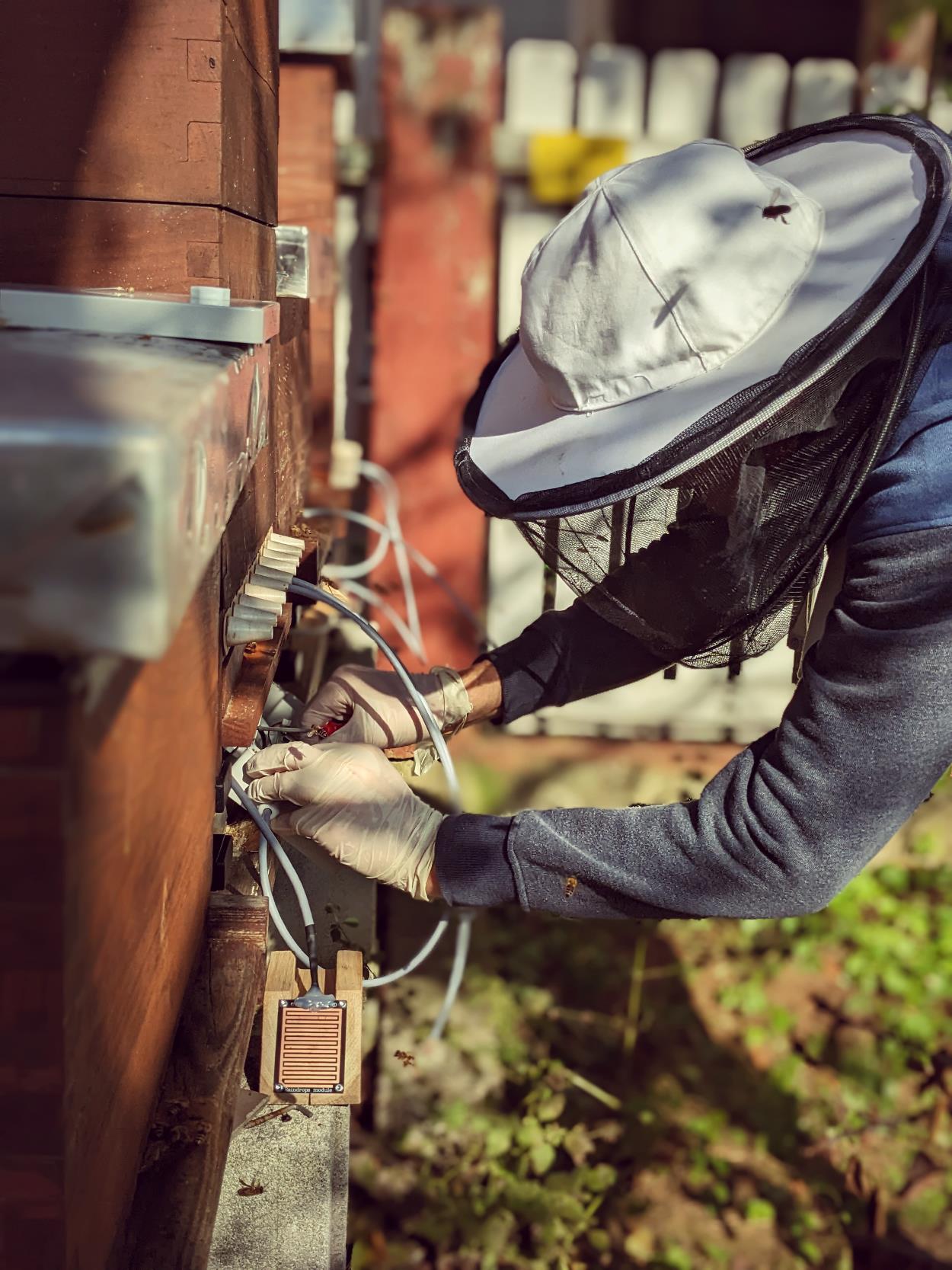An AI-powered bee monitoring system in development
Beekeeping is one of the key agricultural contributors to yields worldwide due to bees’ pollination services. The needs of the beekeepers are related to the optimization of beehive management to (1) reduce the time and costs needed for beehive management and (2) reduce the stress level of the bee colonies due to beehive interventions and other environmental stressors. However, the current technology solutions aimed toward optimizing beehive management only partially address these needs by offering rudimentary data (e.g., daily mass measurements).

The AIBeeSystem project consortium consisting of the SME Senso4s d.o.o. and the RTO Jožef Stefan Institute (JSI) – Department for Intelligent Systems and JSI offices for innovation and project support – developed a prototype AI-powered bee monitoring system (hereinafter the system), working as a decision-support/interpretation solution for beekeepers. The system offers beehive mass, temperature, pressure, and relative humidity (both ambient and in-hive) measurements and rainfall detection every 10 minutes.

Measured data is then sent to a remote server via NarrowBand-IoT (NB-IoT) communication protocol (NB-IoT is one of the most sustainable IoT technologies, being a royalty-free network as well as offering increased penetration at low power consumption and security of the transferred data). Pre-processed data from the system is then fed into the customized AI algorithm, which provides insight into what is happening in or around a beehive.

The AI algorithm is based on the expert rules (provided by a subcontractor – an experienced beekeeper) and analysis of within-day variations of beehive mass. For example, if within- and intra-day variations of beehive mass indicate foraging activities and the actual weather during the given period and the weather conditions allowed foraging, this might indicate that a beekeeper will need to harvest the money at some point in the future.

The developed system offers beekeepers the chance to optimize their beekeeping practice by carrying out beehive inspections only when necessary (as suggested by the system or when necessary, as seen by a beekeeper). This allows them to reduce their carbon footprint, costs, and time by reducing the number of visits to their apiary/bee yard and subsequent beehive inspections. The latter results in reduced stress among bee colonies, which can significantly impact their health status and productivity, and in more sustainable beekeeping practice.

The system samples are currently being tested in cooperation with the Urban Beekeepers' Association of Slovenia at the project subcontractor’s bee yard in Ljubljana, Slovenia. The preliminary dataset with raw data and beekeeper’s notes is publicly available upon request (link).
This sub-project has received funding from the European Union’s Horizon 2020 research and innovation programme under Open Call 2 of DIH4AI project GA No 101017057.


